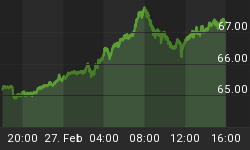Key data releases from Germany and Belgium yesterday and today confirm our view that Eurozone growth will surprise on the upside through the first half of next year, and that the 25bp rate hike expected from the European Central Bank (ECB) on December 7 will not be its last in this cycle. The markets seem to agree - the euro has surged back above $1.30 after months of rangebound trading.
The German Ifo business survey once again revealed an improvement in optimism about German economic conditions. The main index rose from 105.3 last month to 106.8 this month - equaling June's 15½-year high - and the forward-looking business expectations index jumped from 99.2 in October to 100.1. The current conditions index also rose again, to 113.9 (111.8 in October). Interestingly, the trade and industry component of the main index climbed to 12.8 (9.8 in October) while the manufacturing component edged upward again, to 22.3 (20.2 in October). In particular, manufacturers saw increasing opportunities in the already-robust export business.

Further evidence of the strength of the German economy came with the details of Q3 GDP growth, also released yesterday, which confirmed the preliminary release of +0.6% on the quarter and +2.3% on the year. The seventh consecutive quarter of expansion was driven by buoyant private consumption (+0.7% q-o-q), exports (4.2%), and investment (+0.8%).

All told, the data indicate strong Q4 German GDP growth. The Ifo also suggests that any dip in the economy from January's much-talked-about three percentage point hike in the VAT - reflected in the fall in the retailing component of the index, from -7.4 in October to -9.2 in November - will be brushed off pretty quickly. Companies are already looking past Q1 and anticipating continued solid growth thereafter. Our own forecast model for German annual GDP growth suggests a recovery from 2.3% in Q3 to around 2.8% in Q4 and even a further increase to near 3.0% in Q1 2007.

Today saw the release of preliminary German inflation data. EU-harmonized annual inflation accelerated to 1.5% from 1.1% in October, perhaps an early indication of firms already passing on the impending VAT rise. As German inflation counts for nearly a third of the Euro-zone price index, this suggests that Euro-zone inflation also will head upward again this month. This week, ECB President Trichet and fellow policymakers also cited concerns about Euro-zone inflation.
Which takes us to the final key data release, the business confidence indicator from Belgium's National Bank. As we've noted before, thanks to Belgium's strong trade ties with its neighbors, the BNB's business confidence index is a reliable leading indicator - about six months out - for GDP growth in the Euro-zone as a whole. While the headline index remained firmly in positive territory, it actually dipped from 3.8 in October to 3.5 in November. However, most of this decline came from the retail sub-component, which dropped to -1.3 (+4.5 in October), apparently as an unseasonably-warm bout of weather hit sales of winter-related items. Of greater interest for our purposes is the manufacturing sub-component, which jumped from +2.4 in October to +4.1 in November. About 80% of Belgium's manufacturing output is sold abroad, mostly to fellow EU members, and manufacturers reported a sharp increase in foreign orders, with the trend rising to +10 (0 in October).
Incorporating the BNB data, our model indicates that annual growth in Euro-zone GDP will climb from 2.6% in Q3 to near 3.2% in Q4, and retreat only slightly in Q1 2007.

The December 7 rate hike from the ECB is pretty much a foregone conclusion, and better than expected growth in Q1 2007 and continued inflation pressures point to a 25bp rate hike from the ECB next February or March. With market consensus moving in this direction, there is a possibility the euro could re-test its all-time high of $1.3667 before the end of this year. So far, the Euro-zone's policymakers and politicians have not reacted to the currency's renewed strength. On a trade-weighted basis, the euro remains below its late-December 2004 peak. However, if the currency starts approaching $1.35 - generally assumed to be the level at which Euro-zone exporters in generally, and German ones in particular, would start to suffer - we can expect some verbal interventions from the ECB.

Key Euro-zone data to watch over the next two weeks will be money supply data on the 28th; then various 'zone sentiment surveys, unemployment data, and flash November CPI, all on the 30th.















